Founder and CEO of Skybertech IT Innovations Pvt Ltd with offices located in Kochi Infopark, Thrissur, Palakkad and the latest office in UAE. Handling a team of more than 50 members, he provides IT advisory services to 100+ clients globally. Associated with major corporates acting as their CIO (Chief Information officer) and CTO (Chief Technical officer)

An effective IT strategy aligns an organization's technology with its business goals, fostering innovation, growth, and efficiency. It involves evaluating existing IT capabilities, identifying gaps, and formulating a roadmap for achieving long-term objectives. Key components include governance, risk management, and adopting emerging technologies. By streamlining operations and enhancing decision-making, IT strategy ensures that investments deliver value. It serves as the foundation for competitive advantage, enabling organizations to adapt to market changes while driving sustainable success in a digital-first world.

IT budgeting involves the strategic allocation of financial resources to technology initiatives that support organizational goals. This process includes planning for hardware, software, infrastructure, and personnel costs while considering operational and capital expenses. Effective IT budgeting requires balancing innovation with cost efficiency, enabling organizations to invest in transformative technologies. It ensures resources are utilized optimally to drive growth, maintain systems, and address emerging needs. A well-crafted IT budget fosters financial discipline, supports long-term planning, and enables proactive responses to evolving business challenges.

Process improvement focuses on enhancing workflows, systems, and operations to boost efficiency, reduce costs, and improve quality. It involves analyzing current processes, identifying bottlenecks, and implementing changes using methodologies like Lean, Six Sigma, or Agile. By streamlining operations and eliminating waste, organizations achieve better resource utilization and increased productivity. Continuous improvement fosters innovation, enhances customer satisfaction, and supports adaptability in dynamic markets. A culture of process improvement empowers teams, drives measurable results, and positions businesses for sustained success.

IT system management involves the administration, maintenance, and optimization of an organization’s technological infrastructure. It encompasses managing hardware, software, networks, and data systems to ensure seamless operations. This includes monitoring performance, addressing issues, and implementing upgrades to maintain reliability and security. Effective IT system management supports business continuity, enhances user experience, and minimizes downtime. It also enables scalability and innovation by adapting systems to changing needs. Proactive management ensures robust IT environments that align with organizational goals and compliance requirements.

Project management is the structured approach to planning, executing, and finalizing initiatives to achieve specific objectives. It involves defining scope, allocating resources, managing risks, and monitoring progress while ensuring timelines and budgets are met. Effective project management fosters collaboration, aligns teams, and drives successful outcomes. Methodologies like Agile, Scrum, or Waterfall tailor the approach to project needs. It ensures that deliverables meet quality standards, stakeholder expectations, and organizational goals. Strong project management transforms ideas into reality, driving business growth and innovation.

Artificial Intelligence (AI) helps to learn, analyze data, and make decisions, enhancing business efficiency and innovation. Companies can use AI tools for automation, data analytics, customer service . From chatbots to personalized recommendations, AI streamlines operations and drives growth. By leveraging AI, businesses gain a competitive edge, improve decision-making, and adapt to evolving market demands.
An effective IT strategy aligns an organization's technology with its business goals, fostering innovation, growth, and efficiency. It involves evaluating existing IT capabilities, identifying gaps, and formulating a roadmap for achieving long-term objectives. Key components include governance, risk management, and adopting emerging technologies. By streamlining operations and enhancing decision-making, IT strategy ensures that investments deliver value. It serves as the foundation for competitive advantage, enabling organizations to adapt to market changes while driving sustainable success in a digital-first world.
IT budgeting involves the strategic allocation of financial resources to technology initiatives that support organizational goals. This process includes planning for hardware, software, infrastructure, and personnel costs while considering operational and capital expenses. Effective IT budgeting requires balancing innovation with cost efficiency, enabling organizations to invest in transformative technologies. It ensures resources are utilized optimally to drive growth, maintain systems, and address emerging needs. A well-crafted IT budget fosters financial discipline, supports long-term planning, and enables proactive responses to evolving business challenges.
Process improvement focuses on enhancing workflows, systems, and operations to boost efficiency, reduce costs, and improve quality. It involves analyzing current processes, identifying bottlenecks, and implementing changes using methodologies like Lean, Six Sigma, or Agile. By streamlining operations and eliminating waste, organizations achieve better resource utilization and increased productivity. Continuous improvement fosters innovation, enhances customer satisfaction, and supports adaptability in dynamic markets. A culture of process improvement empowers teams, drives measurable results, and positions businesses for sustained success.
IT system management involves the administration, maintenance, and optimization of an organization’s technological infrastructure. It encompasses managing hardware, software, networks, and data systems to ensure seamless operations. This includes monitoring performance, addressing issues, and implementing upgrades to maintain reliability and security. Effective IT system management supports business continuity, enhances user experience, and minimizes downtime. It also enables scalability and innovation by adapting systems to changing needs. Proactive management ensures robust IT environments that align with organizational goals and compliance requirements.
Project management is the structured approach to planning, executing, and finalizing initiatives to achieve specific objectives. It involves defining scope, allocating resources, managing risks, and monitoring progress while ensuring timelines and budgets are met. Effective project management fosters collaboration, aligns teams, and drives successful outcomes. Methodologies like Agile, Scrum, or Waterfall tailor the approach to project needs. It ensures that deliverables meet quality standards, stakeholder expectations, and organizational goals. Strong project management transforms ideas into reality, driving business growth and innovation.
Artificial Intelligence (AI) helps to learn, analyze data, and make decisions, enhancing business efficiency and innovation. Companies can use AI tools for automation, data analytics, customer service . From chatbots to personalized recommendations, AI streamlines operations and drives growth. By leveraging AI, businesses gain a competitive edge, improve decision-making, and adapt to evolving market demands.


Core Areas
Completed Projects
Ongoing Projects
Clients Satisfaction

Skybertech IT Innovations Pvt. Ltd., is peopled by an experienced team comprising of a CIO (Chief Information Officer) or CTO (Chief Technical Officer) who acts as your virtual consultative professional with diverse and exhaustive technical expertise and experience in the IT sector. He is amply supported by a group of techno-functional experts who will guide your organization or business in your technology related areas - thereby improving your business functionality multifold. Their assistance will prove vital in dealing with the most complex IT projects - big or small. Skybertech acts as your virtual IT technology center - advising and leading your organization in the right direction with all the IT services and support you need. In short, Skybertech blends with your IT Team acting on your behalf, lending the right levels of support to deal with promising projects and technical/technological challenges.
View
AI for Architects conducted at IES College Of Architecture Chittillappily
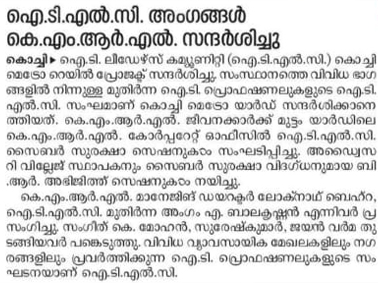
Feeling Grateful and Inspired!
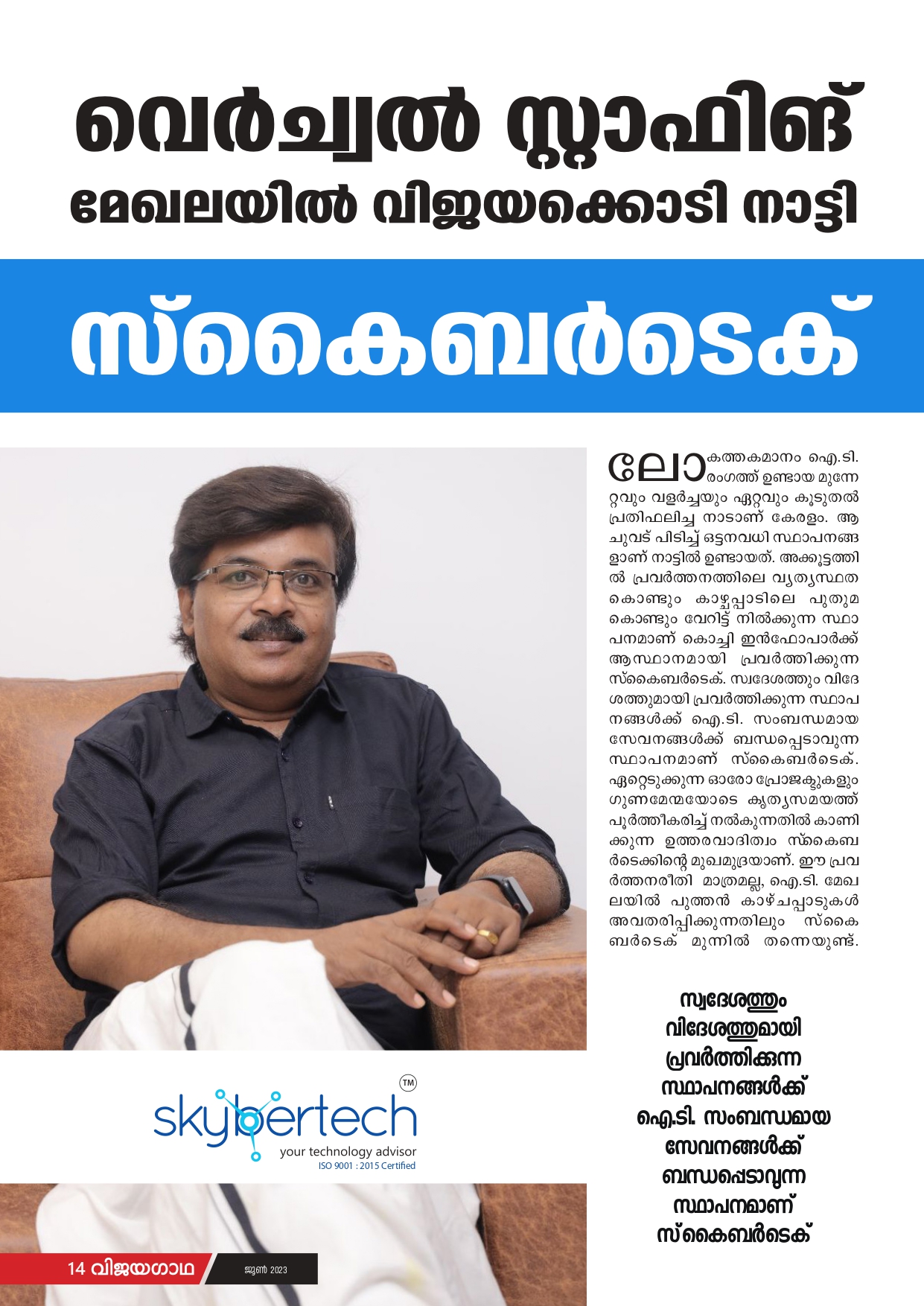
SkyberTech – Virtual Staffing Solutions
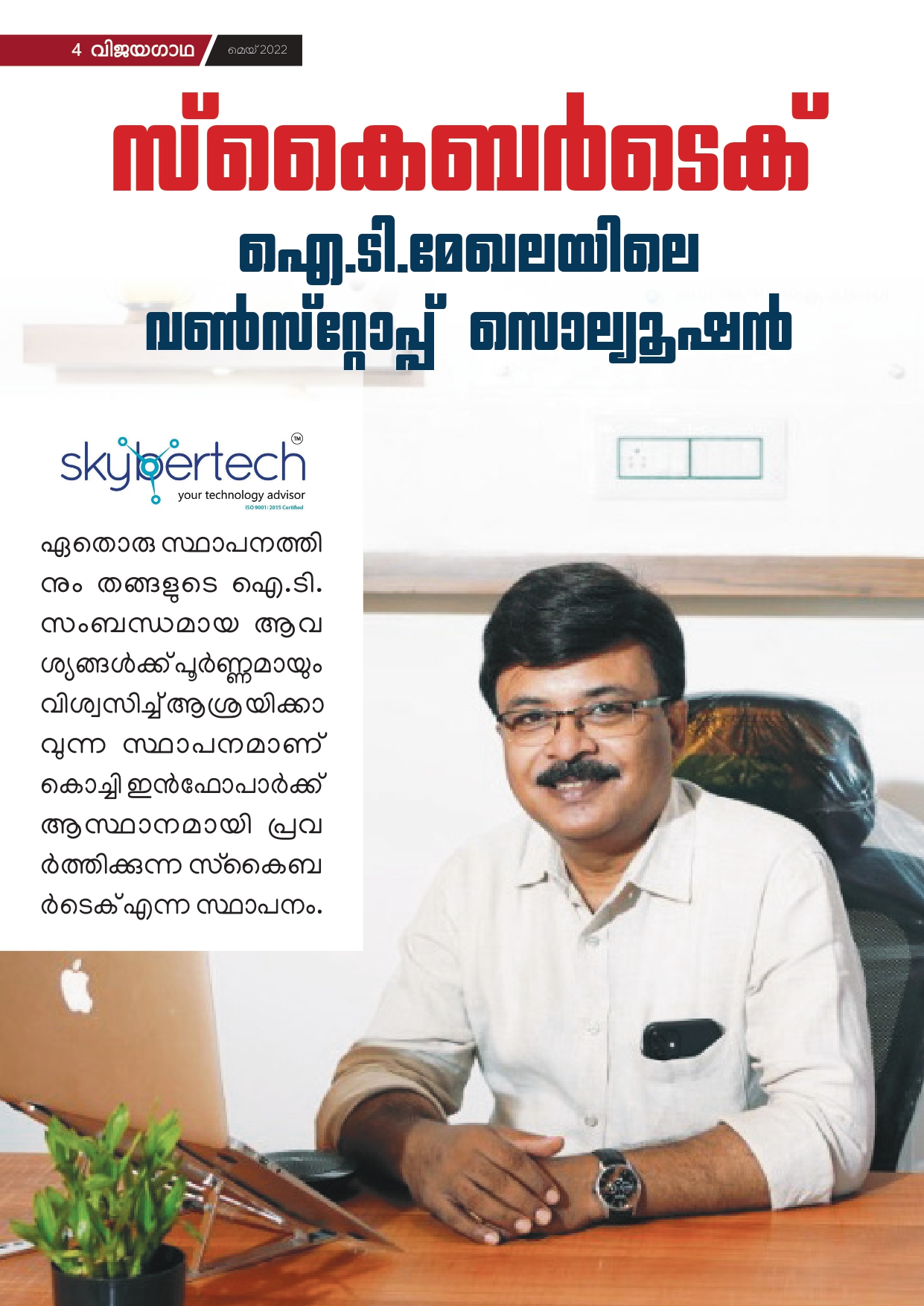
Committed to Progress, Dedicated to Society
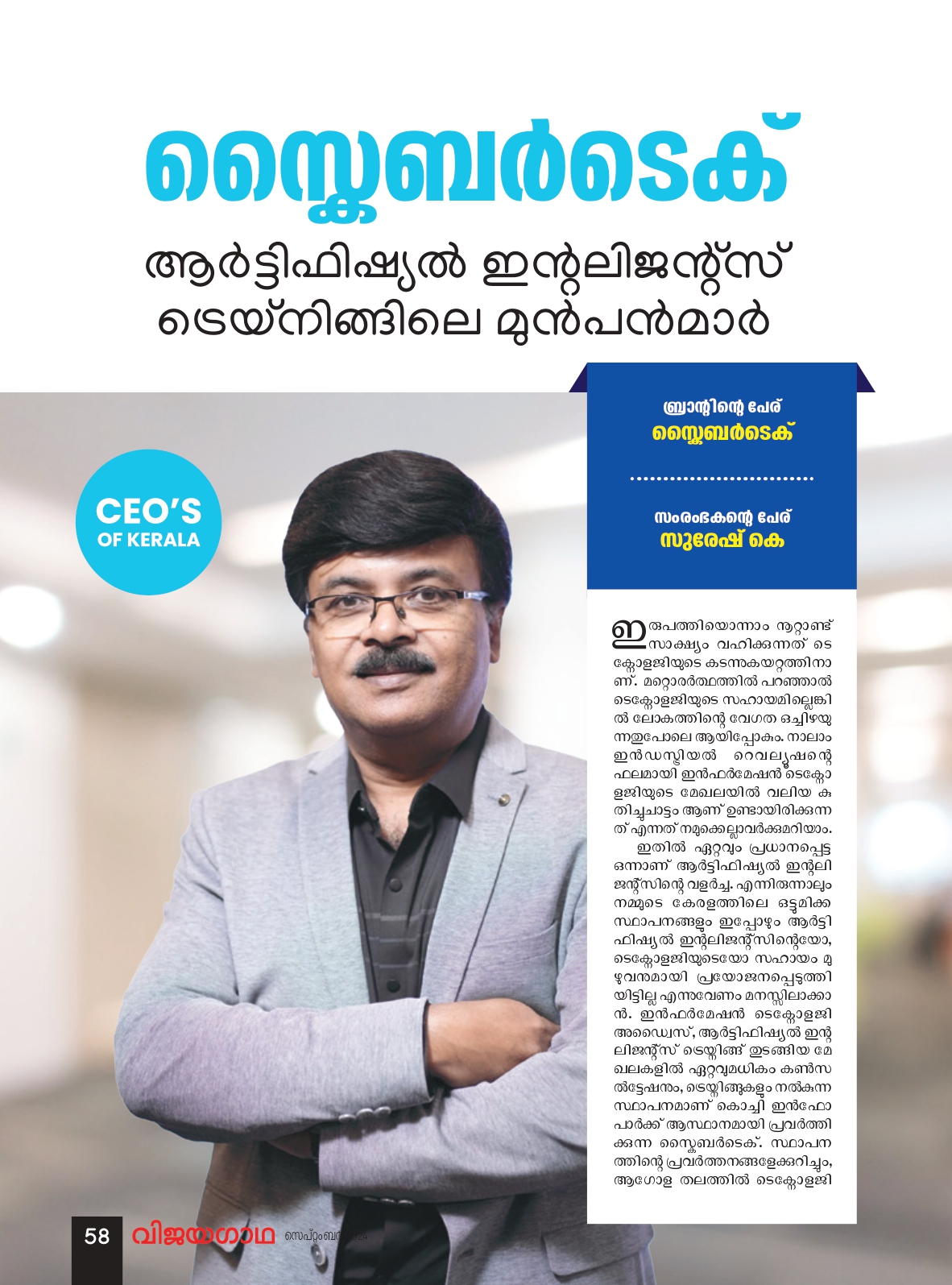
Empowering Businesses with AI-Driven Efficiency

Digital Transformation & Technologies

Skybertech Recognized as a Top Managed Services Provider

Dhwani Business Conclave 2024

Feeling Grateful and Inspired!
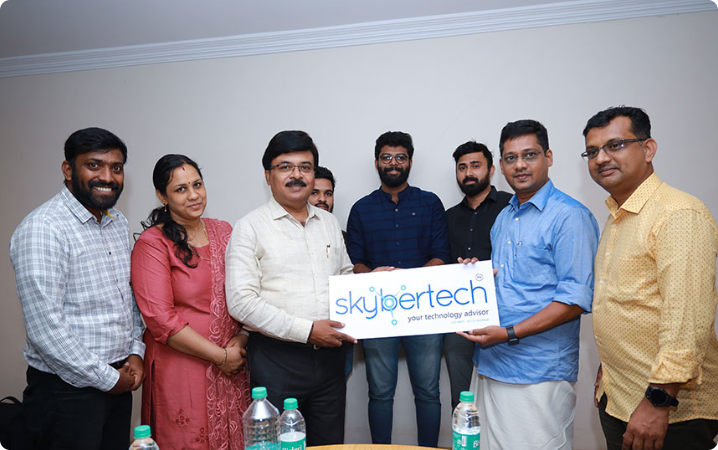
Chief IT consultant & MD Skybertech IT innovations pvt ltd revealing the Skybertech logo

AI for Architects conducted at IES College Of Architecture Chittillappily
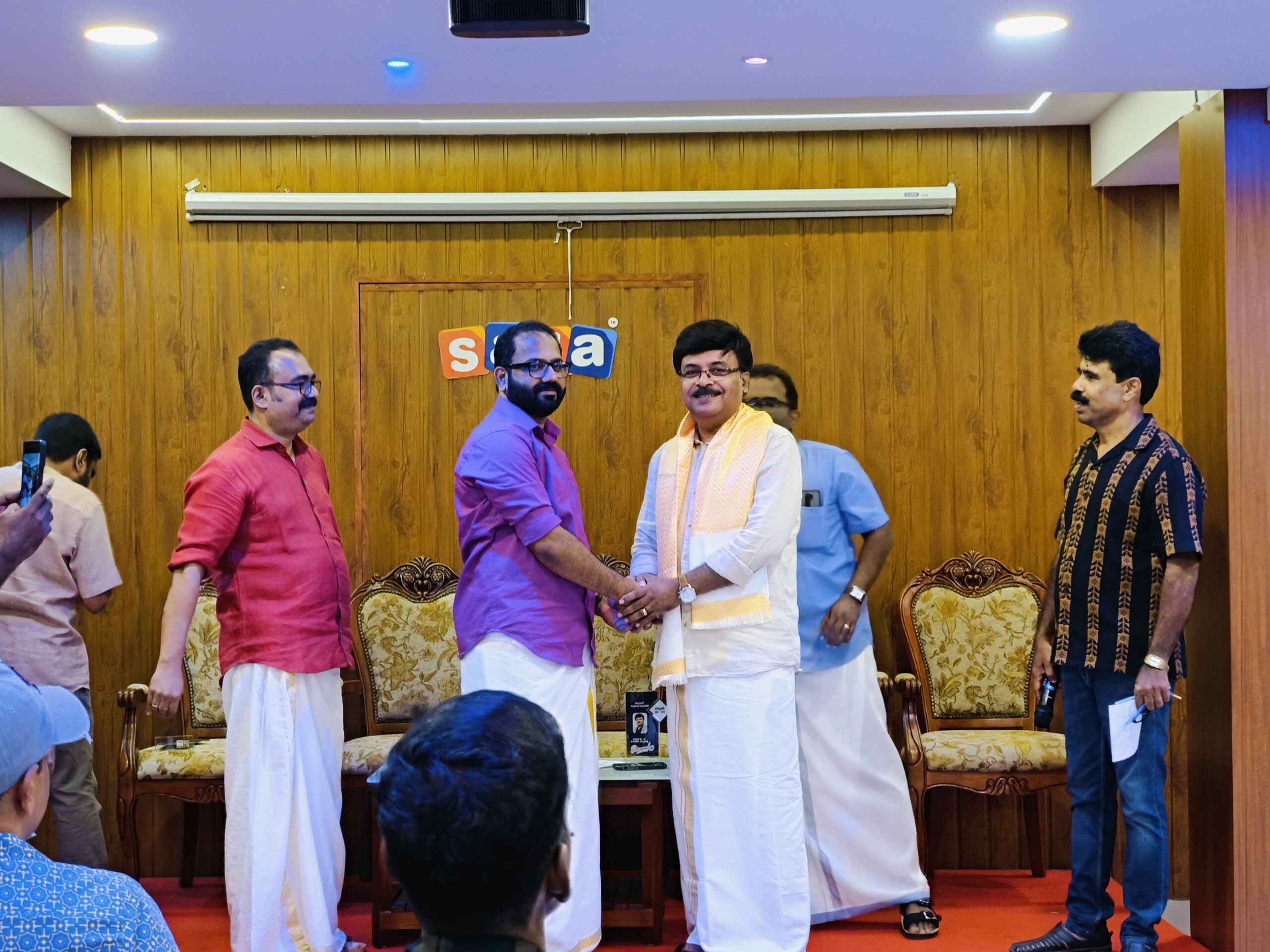
KTMHS MANNARKKAD PLATINUM JUBILEE CELEBRATION
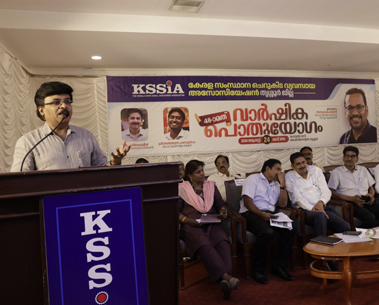
KSSIA App Launch Event

AI Practical Workshop – HEF Thrissur District Committee
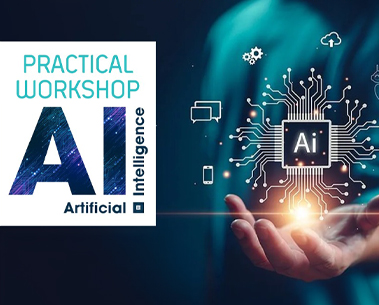
Artificial Intelligence Practical Workshop – Hindu Economic Forum
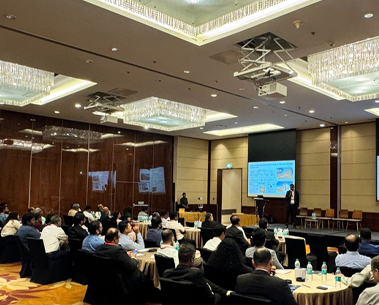
The World CIO 200 Summit-2024 Roadshow

Handhold Entrepreneurs Practically – Technology and Digital Management

Skybertech-FZE (Dubai) received its Certificate of Formation

Kottakkal Arya Vaidyashaala

Skybertech-FZE (Dubai) received its Certificate of Formation